Fleur Lemoine is a licensed practical nurse. For this 26-year-old young woman from France, vocational training was a gateway to Québec and an essential job that is rewarding and pays well.
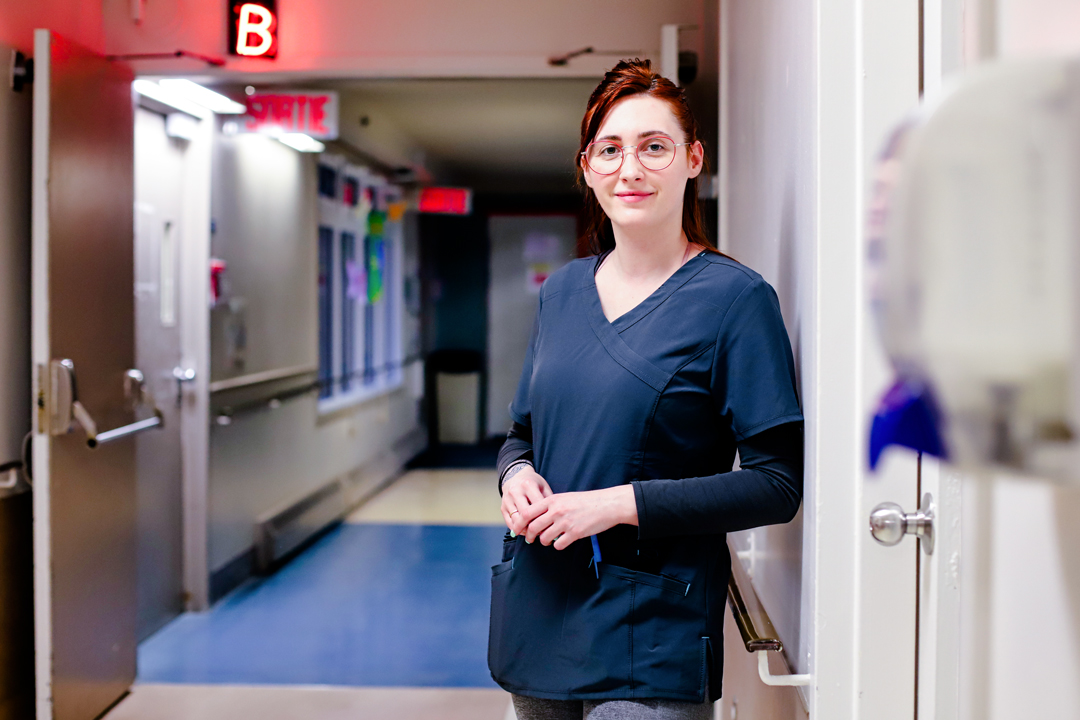 Fleur Lemoine was born in 1995 in Bayonne, a town in the Basque Country, a region in southwestern France.
Fleur Lemoine was born in 1995 in Bayonne, a town in the Basque Country, a region in southwestern France.Fleur Lemoine was born in 1995 in Bayonne, a town in the Basque Country, a region in southwestern France. After high school, she obtained a Diploma of Occupational Studies (BEP) in health and social careers and a Certificate of Professional Aptitude (CAP) in hairdressing. She then worked as a maintenance worker in a hospital and then with the elderly as a homemaker.
As a teenager, she was already interested in Canada. Her boyfriend at the time had lived in Sherbrooke for several years. Together, they made a plan to return and settle. The couple separated, but Fleur's desire to immigrate to Québec remained.
Organizing her Journey to Québec
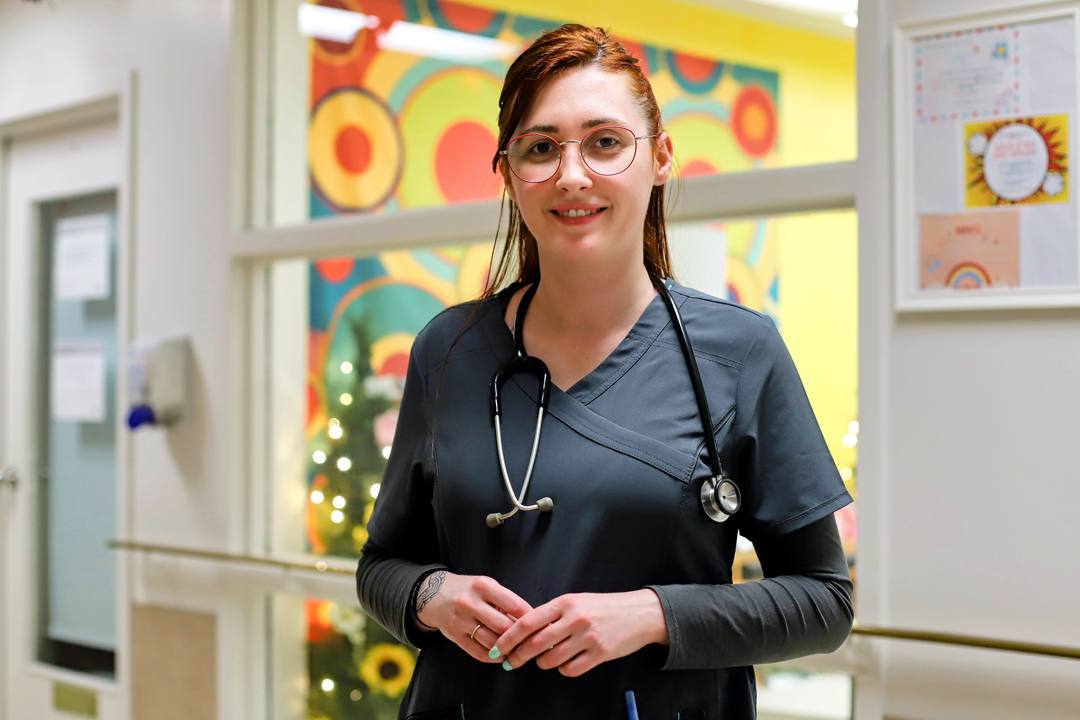 As a teenager, she was already interested in Canada. A friend reminded her of the educational opportunities in Québec and the career possibilities.
As a teenager, she was already interested in Canada. A friend reminded her of the educational opportunities in Québec and the career possibilities.It was an advertisement for the health, assistance and nursing training produced by Québec Métiers d'avenir, sent to her by a friend, that introduced Fleur to this personalized support service for studying in vocational training in Québec. "The counsellors there reassured me and guided me during the preparation and organization of my study project. They also gave me advice, especially on how to pack the right things, since I arrived in Canada in the middle of winter."

Choosing Vocational Training in Québec
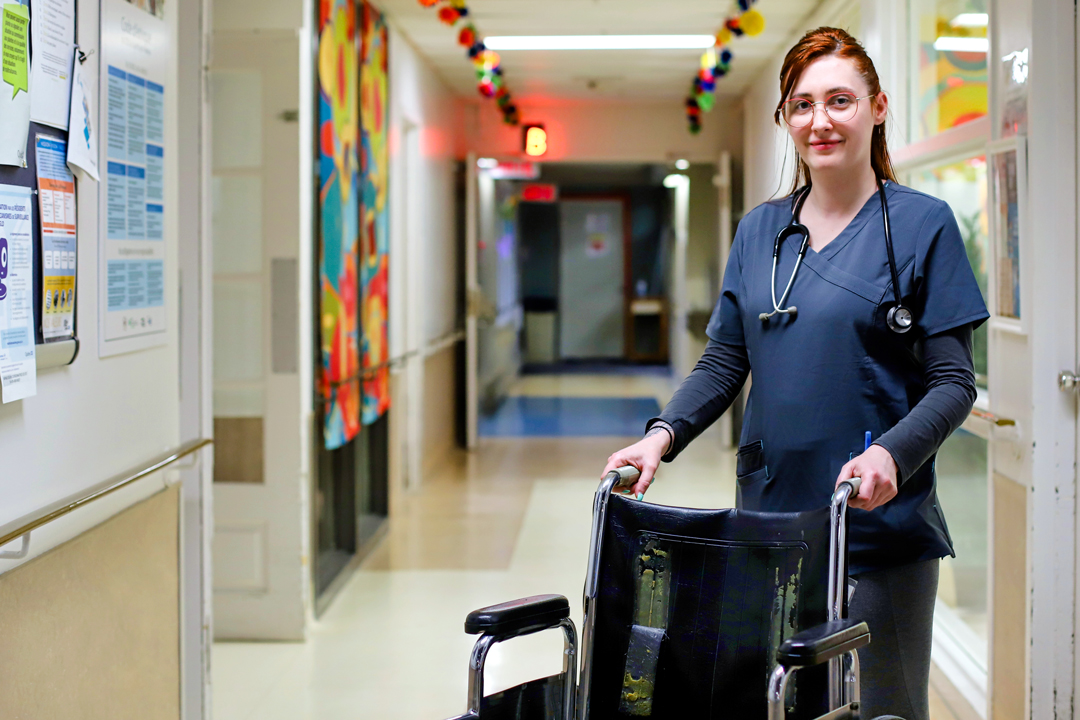 The young woman enrolled at the Centre de formation professionnelle des métiers de la santé, in Kirkland, in Health, Assistance and Nursing.
The young woman enrolled at the Centre de formation professionnelle des métiers de la santé, in Kirkland, in Health, Assistance and Nursing.According to Fleur, going back to school outside of one's native country requires wholehearted commitment from the student. "It requires being perseverant and able to adapt. You have to set goals and make sure you achieve them. You have to be emotionally invested in your success." She points out that vocational training programs in Québec have the advantage of being easily accessible. "There is no entrance exam like for many training programs in France."
"In France, I interned in a CHSLD and spent an entire day shadowing a nurse. I fainted as soon as we changed an elderly woman's dressing. I went home that evening and told my mother that at least I knew I could never be a nurse! Never say never; you never know what life has in store for you. "
Health, Assistance and Nursing
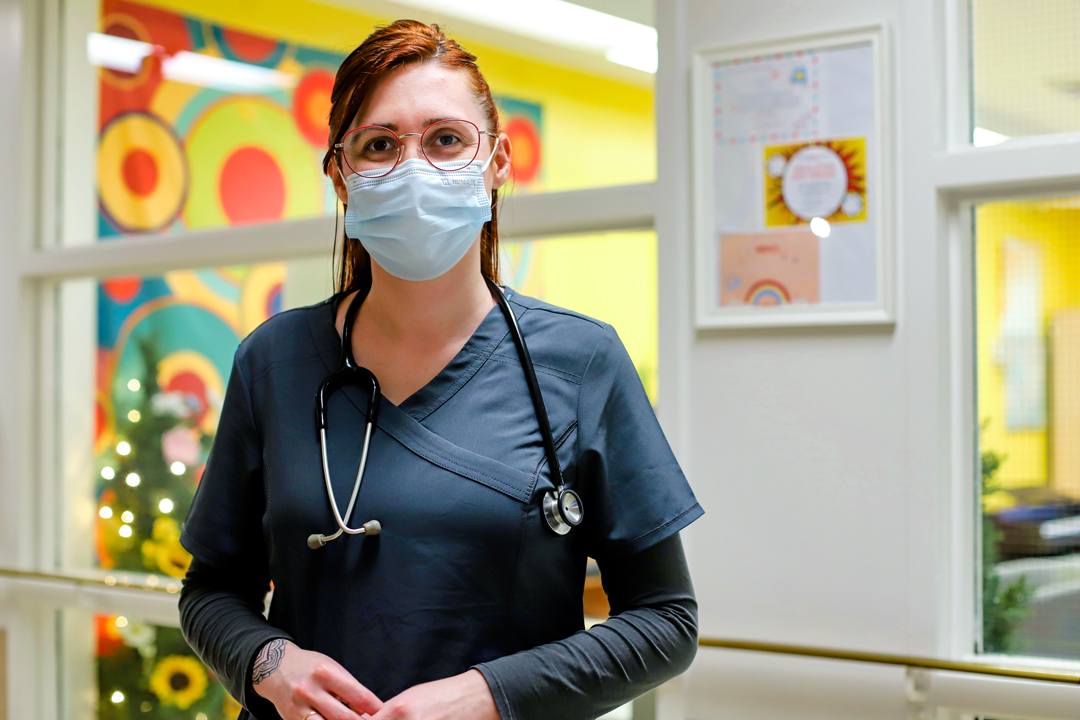 "The educational system here is great! There is no hierarchy between teacher and student, but rather healthy communication, support and constant guidance." Fleure Lemoine, Licensed Practical Nurse
"The educational system here is great! There is no hierarchy between teacher and student, but rather healthy communication, support and constant guidance." Fleure Lemoine, Licensed Practical NurseThe young woman enrolled at the Centre de formation professionnelle des métiers de la santé, in Kirkland, in the Health, Assistance and Nursing program, which lasts 1,800 hours over 18 months, including 22 weeks of internship. Her journey has seen both success and failure, ups and downs, as she had to retake some difficult evaluations to obtain all of the required competencies.
"The educational system here is great! There is no hierarchy between teacher and student, but rather healthy communication, support and constant guidance. The teachers are invested in our success. They don't count their hours.
"I appreciated that there was as much theory as practice during the courses, the evaluations in the form of multiple-choice questions and finally the quality of the textbooks."
Licensed Practical Nurse: A Calling
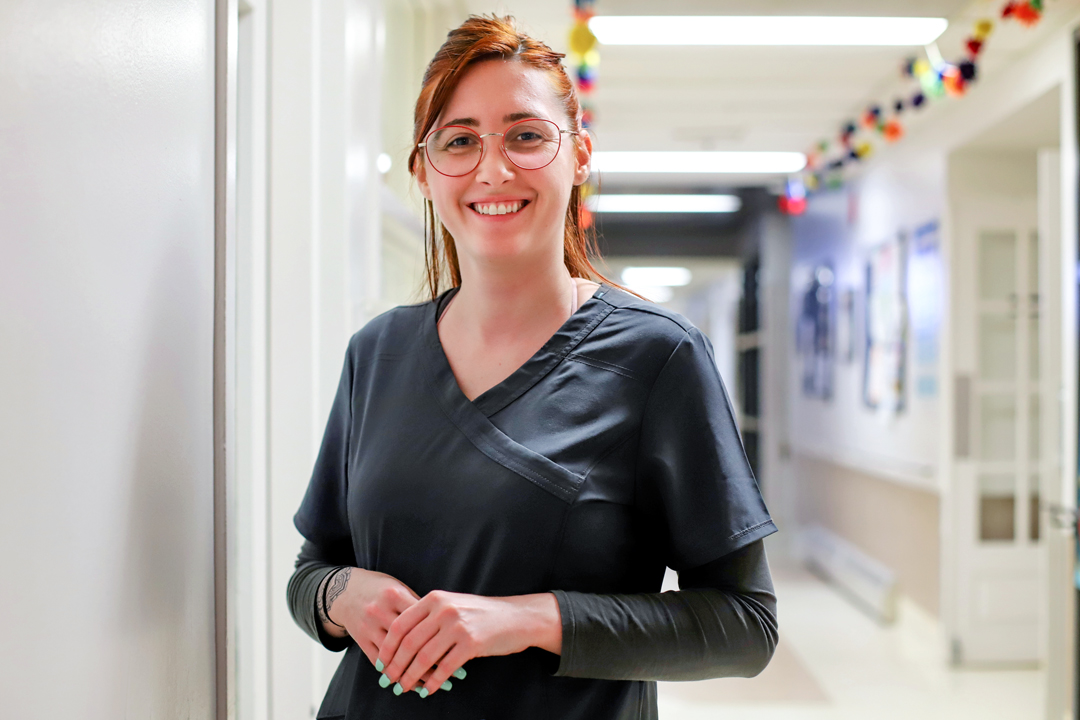 After passing the Ordre des infirmières et infirmiers auxiliaires du Québec exam in April 2021, she turned to agency work, which led her to work everywhere in .
After passing the Ordre des infirmières et infirmiers auxiliaires du Québec exam in April 2021, she turned to agency work, which led her to work everywhere in .In collaboration with doctors and registered nurses, licensed practical nurses provide various types of care to patients; for example, they take vital signs, carry out venipunctures, change dressings, distribute medication, etc. They are the care professionals who work closest to the patient.
Fleur considers this to be a very rewarding job. "I've always felt this calling to take care of people. Feeling useful brings me happiness. So, it was natural for me to go into health care."
"The educational system here is great! There is no hierarchy between teacher and student, but rather healthy communication, support and constant guidance."
"A profession in helping relationships is made for those who love human beings without judgment, with empathy." Of course, other advantages influenced her professional orientation: excellent job prospects, a good salary and the possibility of continuing her studies afterward.
Consult other videos related to the trade and training under Useful links and videos tab on the Health, Assistance and Nursing program page.
Getting Started in the Job Market
After graduation, Fleur joined the Centre hospitalier de l'Université de Montréal (CHUM), where she saw the realities of the profession while navigating the health regulations during a pandemic.
After passing the Ordre des infirmières et infirmiers auxiliaires du Québec exam in April 2021, she turned to agency work, which led her to work everywhere in Québec. What motivated her choice? The advantageous salary and absence of overtime. "I choose my contracts, often for an indefinite period. Currently, I work in Trois-Pistoles."
Overcoming Obstacles
Being in school while far from her family and without financial support, Fleur Lemoine readily admits that it was a difficult time for her. "My parents would send me enough money for my rent and some bills, but they didn't know that I couldn't eat every day."
To make ends meet, the student found a job as an au pair, which provided her with housing near her vocational centre. "I was taking care of three young boys in the evenings after school, but six months after I arrived, their parents ended my employment."
In addition to the stress of finding new lodging with a roommate, Fleur had to buy a car to get to school. With a shortage of roommates in the southwest part of Montréal, she accepted a classmate's offer to stay with her.
A few months later, she moved to downtown Montréal for an internship. "The distance from my family, being far away and alone, was hard at times, especially during the winter and holidays. My challenge was to be fully present during class, despite the depressing moments."
"Studying abroad means learning to live alone. To become comfortable with solitude and be self-sufficient. For me, it was an opportunity to confront my fear of abandonment and surpass myself, to grow."
A Head Full of Projects
Today, Fleur lives in Montréal with her partner, who is also a French ex-pat. They plan to become parents soon and wish to buy a house. The couple is excited to obtain their permanent residency, which should happen in the near future. The young nurse is also thinking about going back to college.
For her, there is no doubt that her adventure was worth it. "I encourage everyone to venture outside their comfort zone. Especially since now, there are some interesting scholarships in certain fields with labour shortages.
"Aside from training, leaving everything you know behind is the greatest school. As I like to say, to travel is to discover the world, but it is first and foremost a discovery of yourself. It is an encounter with oneself, and it is the most enriching of experiences."
